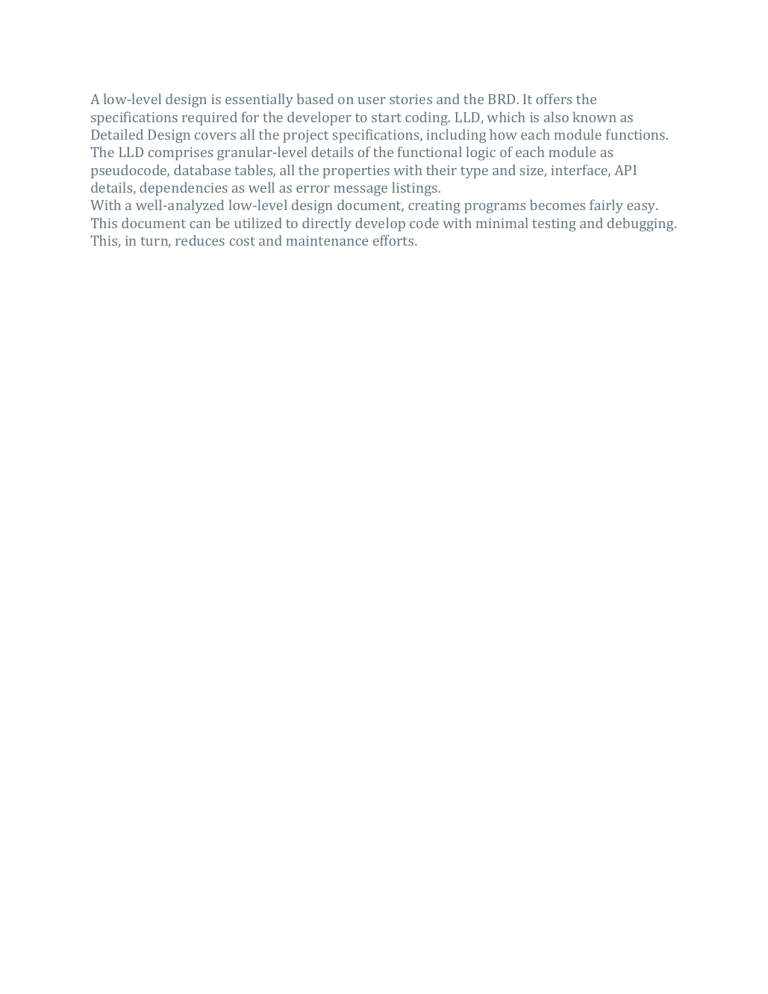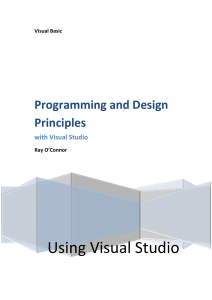
A low-level design is essentially based on user stories and the BRD. It offers the specifications required for the developer to start coding. LLD, which is also known as Detailed Design covers all the project specifications, including how each module functions. The LLD comprises granular-level details of the functional logic of each module as pseudocode, database tables, all the properties with their type and size, interface, API details, dependencies as well as error message listings. With a well-analyzed low-level design document, creating programs becomes fairly easy. This document can be utilized to directly develop code with minimal testing and debugging. This, in turn, reduces cost and maintenance efforts.

